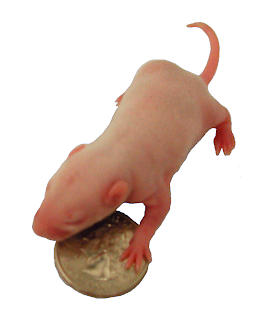Teachers like Facebook. Jeff Utecht, a self-described "educator, presenter, consultant" recently evangelized about Facebook:
It's not fair to pick on Jeff--he's one of an army of teachers leading the charge to a world of awesome goodness if only those otherteachers educators would get it....
I'm one of those old farts resisting Facebook in the classroom. I have my reasons, and I think they're good ones. Here are just a few:
Mark Zuckerberg
Advertisements
Too close
Privacy
Professional laziness
We have a choice. We can act like professionals, or we can continue to take the easier paths. The two are not compatible.
Our primary duty is to the children. If you use a third party to do your work, follow the money.
It's not enough to adopt a technology because everybody else is doing it. We got mobs for that.
READ MORE - 5 reasons teachers should avoid Facebook
It's not fair to pick on Jeff--he's one of an army of teachers leading the charge to a world of awesome goodness if only those other
I'm one of those old farts resisting Facebook in the classroom. I have my reasons, and I think they're good ones. Here are just a few:
Mark Zuckerberg
Mark is Facebook's CEO.
Here's his T-shirt:
Here's a business card:"I'm CEO....Bitch"I don't trust him. I don't deliver my children to someone I do not trust. Nor should you.
Advertisements
Facebook exists to sell your soul, or at least your "lifestyle." It is a commercial site that makes big bucks on directed advertisements. Kids don't get this.
Apparently, adults don't either.
We have no business promoting any activity that exposes children to targeted ads. None.
I once helped keep Channel One out of my school for the same reason. I was quoted in the New York Times back when I was a pediatrician and folks cared what I said.
Teachers want the same kind of respect, we need to start acting in the best interests of the kids.
Too close
Remember when you were in high school? Remember the teacher (or two) who seemed a little too chummy with the lambs?
Don't be that guy. It's creepy. The kids know this even if you don't.
Facebook is primarily a social tool, designed to deliver ads designed for you. It is not, and was never intended to be, an educational tool.
The kids don't want you hanging around with them after school. Really.
Privacy
Mark "I'm CEO....Bitch" Zuckerberg keeps changing the rules on Facebook.
I'm one of the few folks on the planet that reads EUA's. They can be pretty scary. Read Facebook's for comprehension, then tell me straight-faced that you're comfortable with it.
Professional laziness
I used to be a professional. Now I am a teacher.
I love teaching, and I'm getting pretty good at it, but it takes an ungodly amount of hours to get there.
Facebook is a shortcut. You're using a third party with its own agenda to create something useful for your classroom.
You want to model good practice? Develop your own class website on a private domain. You can do it for less than the Coffee Club dues.
Yes, there's a learning curve. No, it's not free, but it's still less than a cup of coffee a day.
You have control over privacy.
Your site has no ads.
You're no one's bitch.
We have a choice. We can act like professionals, or we can continue to take the easier paths. The two are not compatible.
Our primary duty is to the children. If you use a third party to do your work, follow the money.
It's not enough to adopt a technology because everybody else is doing it. We got mobs for that.



















